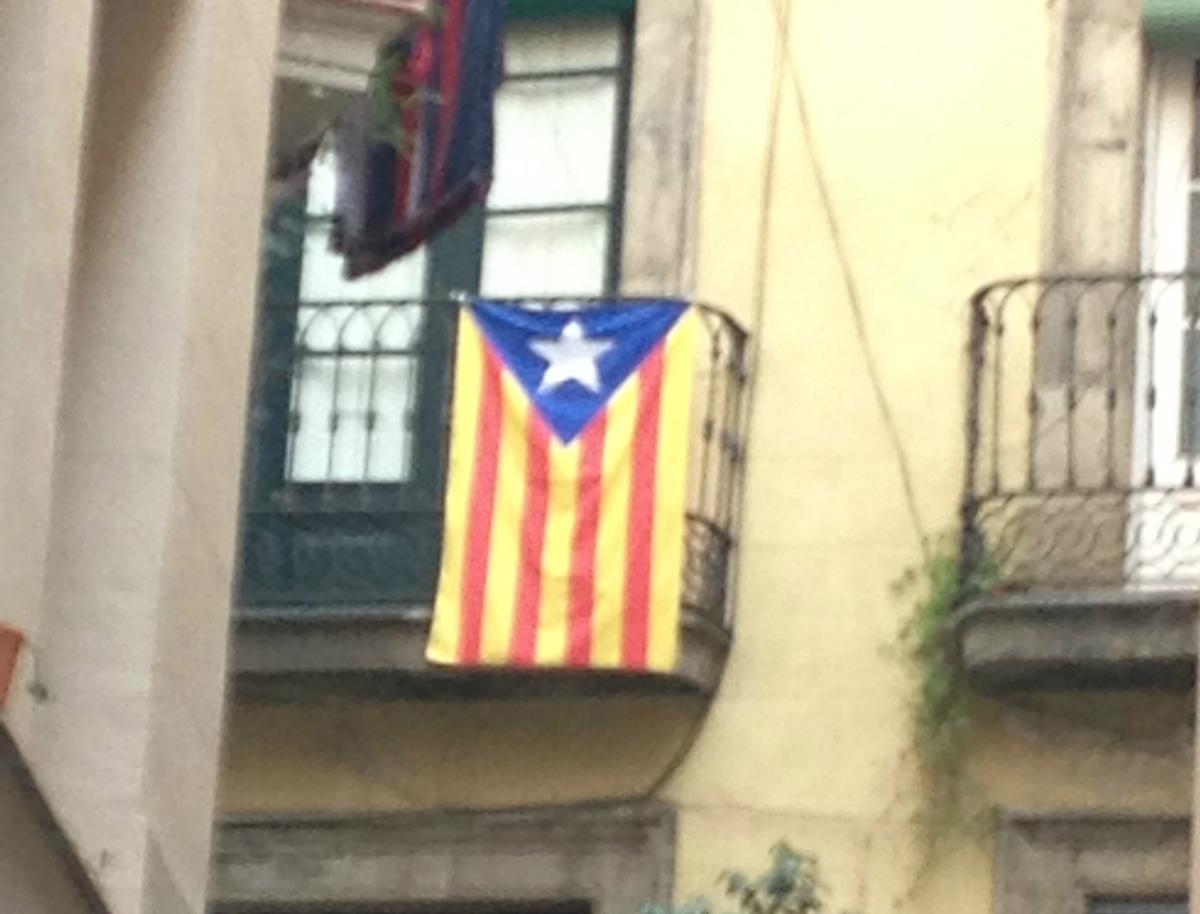To spot a Spanish flag in Barcelona is, these days, an almost hopeless task. Sure, there is the odd one here or there, but it is the yellow and red flag with stripes and stars that waves defiantly in the streets of Barcelona, the capital of the autonomous community of Catalonia and the second largest city in Spain.
On 11 September the irrepressible wave of Catalan independence became a tsunami when a massive human chain – called the Catalan way to independence – demanded total freedom from Spain. “Catalonia, Europe’s Next State,” was the loud and clear note sent to Madrid.
It was a human chain a la “Baltic”, when in 1989 more than one million people joined hands through Estonia, Lithuania and Lithonia demanding independence from the former Soviet Union.
The Catalan way to independence is a break away movement that is growing in enthusiasm and number among the region’s 7.5 million inhabitants. Around a year ago support for independence was around 46 per cent, and in 2008 it was half that.

Recent polls suggest it has risen to 52 per cent. The same polls suggest that up to 81 per cent support Catalonia’s right to host a referendum. If this happens, 55.6 per cent are likely to support secession and 23.4 per cent would reject it.
The 400 kilometre long human chain — stretching from the neighbouring French border to Valencia — was held on the Diada, the national day that remembers the 1714 siege defeat of Barcelona in the War of the Spanish Succession.
It was a military defeat that for Catalan nationalists marked the beginning of almost 300 years of oppression by the Spanish state, oppression that continued with Francisco Franco who during his brutal dictatorship banned the Diada, the Catalan language, costumes and other expressions of national identity.
With massive participation in the human chain, the independence movement was attempting a show of force to pressure Madrid into accept a referendum. As recession continues to pound Spain harder and harder, the demands for a referendum on secession have grown.
“We want a State now, not in 2016,” said Carme Forcadell, the president of the Catalan National Assembly. "The Catalan people have reaffirmed their determination to be a free state."
“It won’t happen today, but it will happen sooner or later and Madrid will have to yield,” Sergi Blau, a chain-smoking Barcelona newspaper salesman told me. “Basta,” he said. And these days, this is the mood among the majority of Catalans. They have had enough.
Among the many things that Catalans have had enough is what Mariona Guiu, a filmmaker from Barcelona, called the “economic extortion” from Madrid. With a high level of industrialisation and an entrepreneurial tradition, the region is one of the richest and is considered the key driver of Spain’s economy.
The majority of Catalans believe the region loses excessive amounts of revenue to Madrid’s coffers, with little sent back in return. Catalonia is said to pay $15 billion more in tax revenues than it receives back in social spending or investments in infrastructure. Catalans claim that eight per cent of the region’s GDP, or $21 billion US a year, is siphoned off by Madrid.
Catalonia, immortalised by artists such as Picasso and writers such as George Orwell, is experiencing a process of national transition and a profound sense of nationalism. As Pol Bargues, an academic at the University of Westminster said, Catalan nationalists are certain that “Catalonia could — and should — become independent because Catalonia is not Spain.” For Catalan nationalists this means “that Catalonia is a territorial, political and historical entity different from Spain, which only belongs to Spain circumstantially.”
The President of Catalonia Artur Mas has committed himself to negotiate with conservative Spanish President Mariano Rajoy, “until the end” and called on him to approve a referendum.
However, the central government has been hardening its position. Rajoy bluntly rejected a request by the leader of Catalonia to approve a referendum that would allow the autonomous region to decide whether to secede from Spain. “The ties that bind us together cannot be undone without enormous cost."
Rajoy has maintained the official line that an independence referendum would be illegal, a claim supported by the Spanish Constitution, which does not allow unapproved secessions. “The reply is in the constitution and our laws,” he said last year.
History seems to be on the side of Catalonia. The human chain turnout on 11 September was not only the largest pro-independence event to date, but it also was a reminder of the deep historical resentment Catalans have against Spain, a resentment exacerbated by the stubborn Spanish nationalism that insists that “Spain is one and indissoluble.”
The ugly face of Spanish nationalism manifested itself recently in a ferocious assault perpetrated by an extreme right-wing group on the Catalan delegation in Madrid. This only served to reinforce the determination of Catalans to become an independent nation.
This determination has encouraged the Catalan leader, Artur Mas, to defiantly declare that, “There is a Catalan road map that is perfectly established and that we’re following it step by step … all the way toward forming a new state.” Autumn has just begun in Spain, but in Catalonia it seems to be the beginning of spring
Donate To New Matilda
New Matilda is a small, independent media outlet. We survive through reader contributions, and never losing a lawsuit. If you got something from this article, giving something back helps us to continue speaking truth to power. Every little bit counts.



